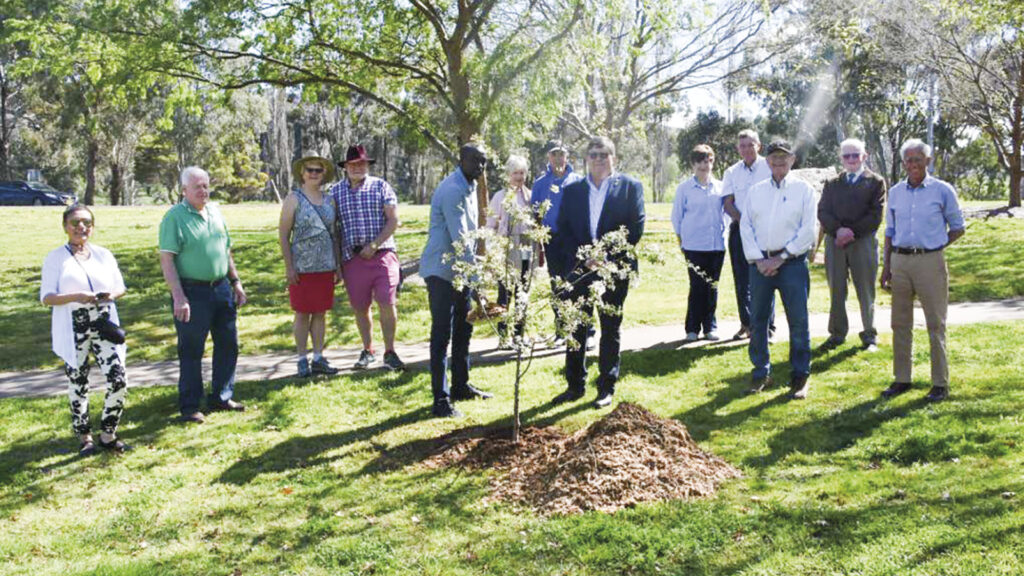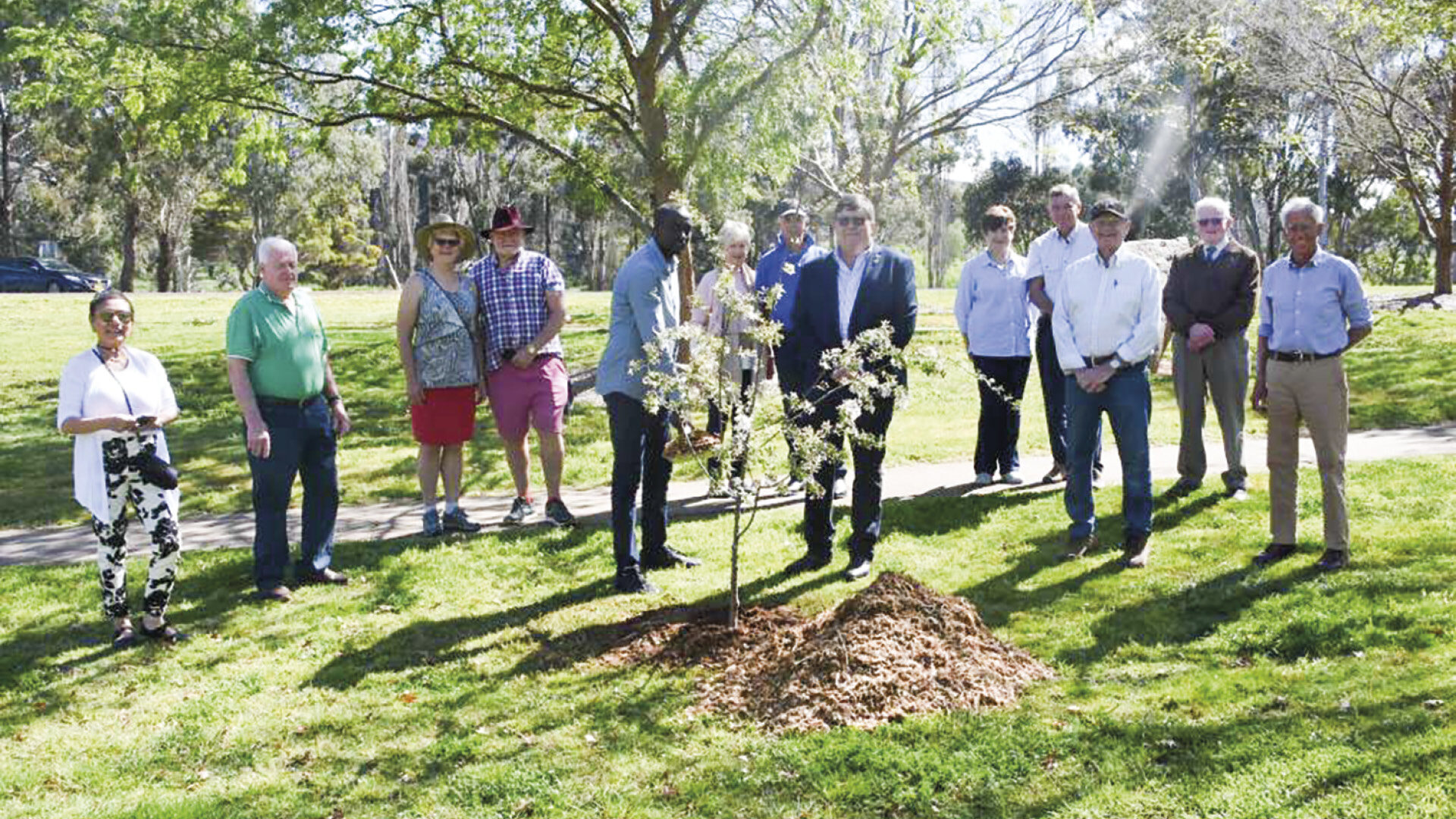
By Matthew Chown
Cowra Guardian
The Rotary Club of Cowra’s traditional tree planting at Europa Park in Cowra, NSW, usually carried out by the district governor, was this year carried out by a member of Cowra’s Congolese community.
The community is part of the Banyamulenge, a minority group from the Tutsi tribe, who have been subjected to genocide within their home country.
Club president Ian Docker said the club’s close work with Cowra’s Congolese prompted the inclusion of the group in the ceremony.
“Generally, in years gone past, we have our district governor come out, do a club audit, and plant a tree,” Ian said.
“This year, that’s not happening because of COVID. But rather than stopping the ceremony, Ray Kelly came up with the idea that, as Europa Park was built for migrants, we should do the tree planting with the migrant community.”
Ian said it was an exciting change.
“It was a shock that we couldn’t have the district governor, but we’re embracing the change,” he said.
“Europa Park was built because of migrants coming from the camp walking into town to listen to the radio and hear news about Europe. We’ve gone back to the beginning and we’re doing a full circle.”
Blaise Mushapa, one of the Congolese Banyamulenge community leaders in Cowra, said the planting was a wonderful recognition of the support Rotary has given them.
“I arrived here in 2019 and was helped by Rotary. The secretary at the time, Richard, helped us and built the connection.
“We now have 10 families here, 53 people in total, they [Rotary] help us with getting jobs, going to appointments, contacting us.”
Blaise said the Congolese Banyamulenge members in Cowra were pleased to call the town home.
“We have a long history; we are a minority community and we left [our home] because of what we are. They say our language is different and we are different people, they don’t agree we are Congolese even though our family have been living there since 1885.
“We are glad to be within Australia. We might not have citizenship, but we need to support activities in this country, the country that gives us security.”
Ian said the club is now looking for other migrant communities to take part in future plantings.
For more information, contact Ian on 0437 672 229 or via cowrarotaryclub@gmail.com.
